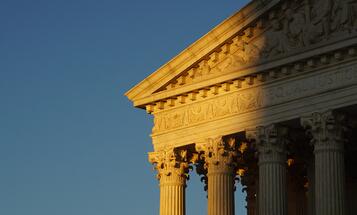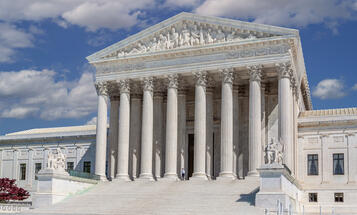
We Can Undo the Damage of Citizens United
Today marks five years since the Supreme Court's infamous Citizens United decision--and perhaps nothing tells the story of the results better than a New York Times article from yesterday called "'Koch Primary' Tests Hopefuls in the G.O.P."
Candidates have long raised the majority of their funds from a small number of wealthy donors, allowing these $1,000 and $5,000 contributors to act as gatekeepers: if an aspiring officeholder doesn't have access to these networks (through professional connections, country clubs, etc.) it's neary impossible to raise the $3,300 each day for six years that a U.S. Senate candidate, for example, needs to compete.
This helps explain why over the past two centuries only two percent of members of Congress have come from working class backgrounds.
But, Citizens United has empowered a few billionaires to make the leap from gatekeeper to kingmaker. Now able to make unlimited contributions to Super PACs, trade associations (like the Chamber of Commerce) or nonprofit groups that can spend unlimited sums supporting favored candidates (or attacking foes), just a few super-wealthy patrons can make or break entire campaigns for Congress and even early presidential bids.
That's why GOP presidential hopefuls are making pilgramages to see Charles Koch in Kansas or his brother David in New York, as Ashley Parker describes in the Times story.
Republican strategist Greg Mueller summed it up neatly, as quoted by Parker: "Whether we like it or not, one of the first primaries in either party is the fund-raising primary, and having access to that network helps you."
It doesn't have to be this way. Demos' latest money in politics report, The Money Chase, shows that matching small political contributions with limited public funds can give grassroots candidates a path to viability that doesn't run through law firms and exclusive country clubs.
And, we can limit the role of mega-donors like the Kochs by transforming the Supreme Court's approach to money in politics or amending the Constitution to clarify that the People have the power to enact common-sense limits on big money in politics.
Five years is long enough. It's time to forge a democracy that is truly of, by, and for all the people--where the strength of one's voice doesn't depend upon the size of one's wallet.



